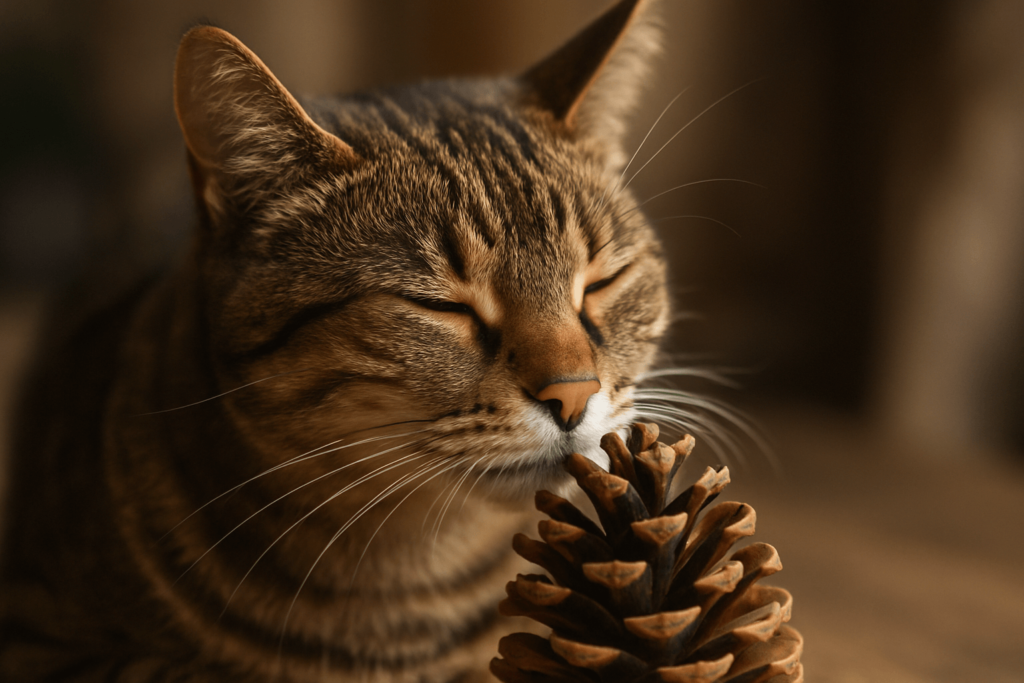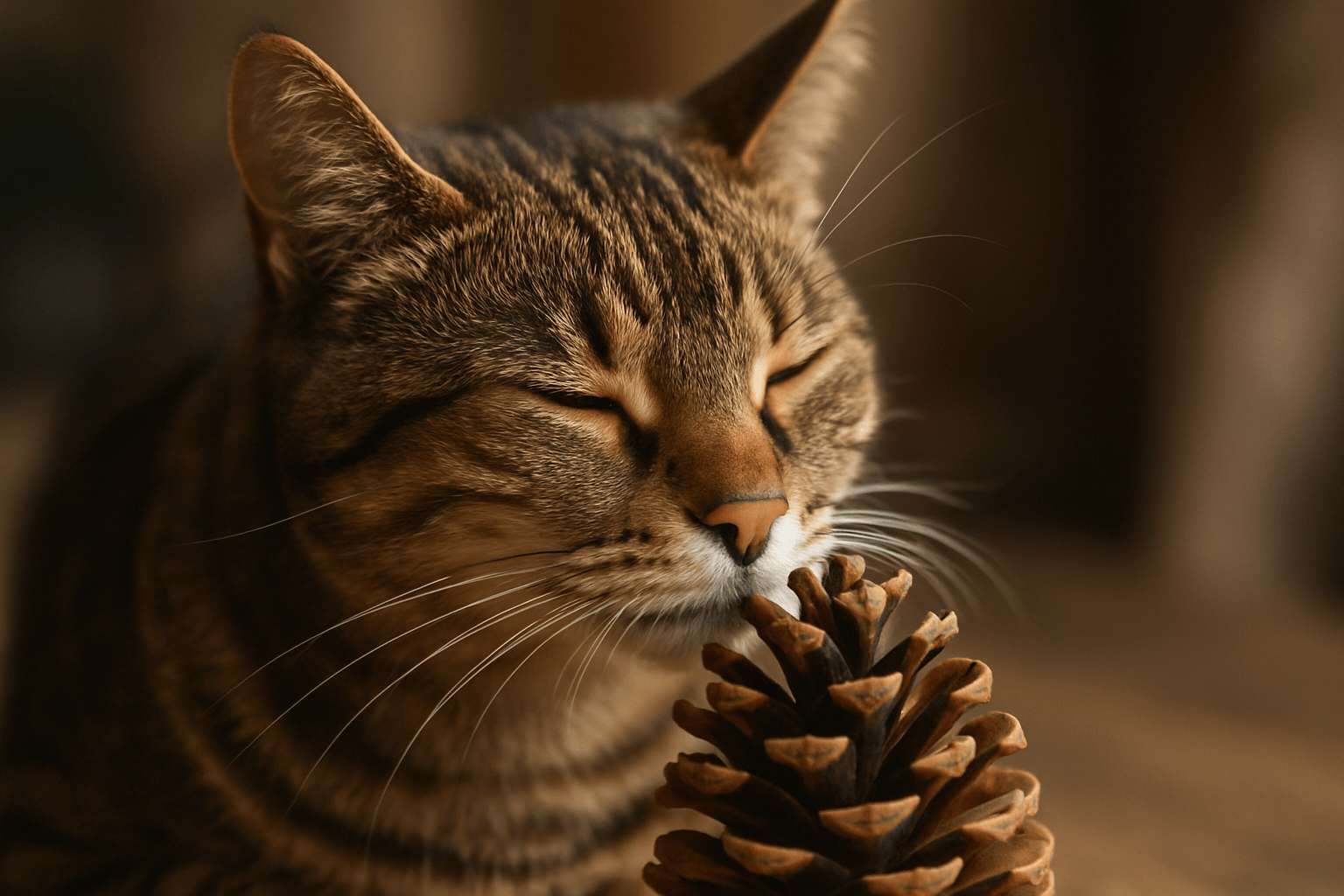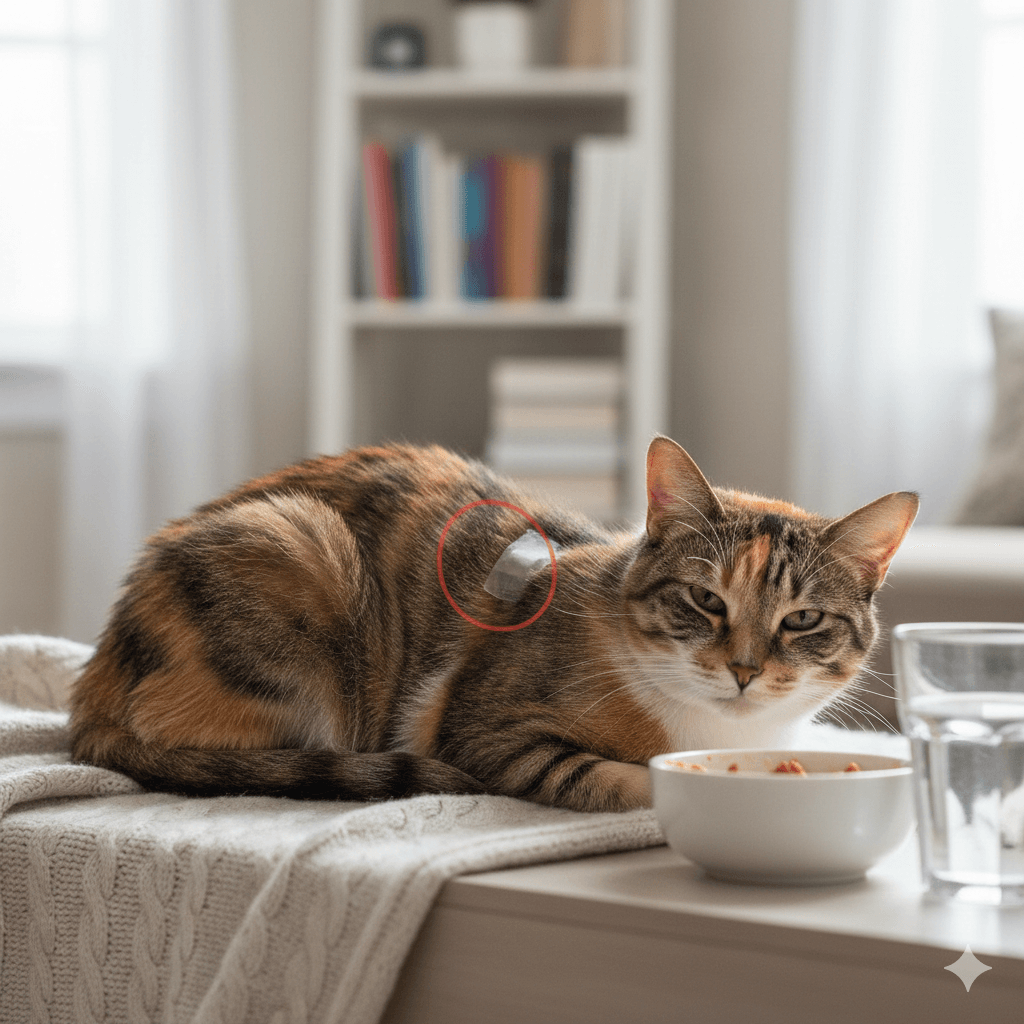Do Cats Have a Good Sense of Smell? The Hidden Superpower Behind Every Sniff
Cats don’t just smell things—they experience them. Every whiff tells a story: who passed by, what’s nearby, whether it’s safe or dangerous. Their nose isn’t just a tool—it’s their primary window into the world. While we rely on sight, cats live in a rich, scent-filled universe most humans can’t even imagine. So, do cats have a good sense of smell? The answer isn’t just yes—it’s an extraordinary, biologically engineered advantage that shapes their behavior, emotions, and survival.
Why a Cat’s Nose Is a Biological Masterpiece
A cat’s sense of smell isn’t just strong—it’s designed for precision, speed, and emotional depth. This isn’t an accessory; it’s central to their identity.
Cats possess up to 200 million odor-sensitive cells in their nasal cavity, compared to just 5 million in humans—making their olfactory power roughly 40 times more acute.
They have a specialized organ called the vomeronasal organ (or Jacobson’s organ), located in the roof of their mouth, which detects pheromones and other chemical signals invisible to us.
Cats can detect scents at concentrations as low as one part per trillion, allowing them to track prey, identify territory, and even sense illness long before symptoms appear.
Their sense of smell is directly linked to the limbic system, the brain’s emotional center—meaning every scent triggers a memory, mood, or instinct, not just information.
Unlike humans, cats don’t “ignore” smells—they analyze them continuously, often pausing mid-step to process a scent trail we’d never notice.
This isn’t just better hearing or sharper vision—it’s an entirely different way of perceiving reality. When your cat sniffs the air and freezes, they’re not being dramatic. They’re decoding a complex, layered message.

How Cats Use Their Sense of Smell in Daily Life
Every purr, every rub, every cautious sniff is guided by scent. A cat’s world is built on olfactory cues—every interaction, from greeting you to avoiding the vet, is influenced by smell.
Marking territory with facial pheromones and scratching allows cats to create a familiar, comforting scent map of their environment.
Identifying other animals—whether a friendly neighbor cat or a threatening stranger—is done primarily through scent, not sight or sound.
Finding food involves sniffing for freshness, protein quality, and even spoilage. A cat will often ignore food that smells “off,” even if it looks fine.
Bonding with humans happens through scent exchange. When your cat head-butts you or rubs against your legs, they’re leaving their mark—and claiming you as part of their social group.
Detecting danger includes sensing predators, unfamiliar people, or even changes in your emotional state—like stress or illness—through subtle chemical shifts in your sweat or breath.
For cats, smell isn’t just one sense among many—it’s the foundation of communication, safety, and connection. Without it, their world would be silent, confusing, and isolating.
Check this guide 👉Why Does My Cat Smell My Breath? Best 7 Expert Tips!
Check this guide 👉How Far Can a Cat Smell? Best 7 Expert Tips!
Check this guide 👉What Cat Food Makes Cats Poop Smell Less? Best 7 Tips!
| How Cats Use Smell | Why It Matters |
|---|---|
| Territory marking via pheromones | Creates a secure, familiar environment that reduces anxiety. |
| Tracking prey or food sources | Essential for hunting instincts, even in well-fed domestic cats. |
| Recognizing familiar humans and animals | Builds trust and social bonds through consistent scent identification. |
| Detecting illness or stress in humans | Cats often sense disease before diagnosis, leading to unusual affection or behavior. |
| Navigating unfamiliar spaces | Scent trails help cats orient themselves and avoid threats in new environments. |
The Science Behind a Cat’s Super Sniffer
The biology of a cat’s nose is nothing short of evolutionary genius. Every component—from the structure of their nasal passages to the neural pathways in their brain—is fine-tuned for scent.
Cats have a larger olfactory bulb relative to brain size than humans, meaning more brainpower is dedicated to processing smells.
Their nasal turbinates—delicate, scroll-like bones inside the nose—are covered in mucus membranes that trap odor molecules for deeper analysis.
The flehmen response—that curious lip-curling behavior—isn’t odd. It’s how they direct pheromones to the vomeronasal organ for detailed chemical reading.
Cats can distinguish between nearly 14,000 different scents, far surpassing dogs in certain categories like pheromone detection and individual recognition.
Their sense of smell works in tandem with taste—cats have far fewer taste buds than humans, so smell plays a dominant role in determining whether food is appetizing.
This isn’t just “good.” It’s a sensory superpower honed over millennia to keep them alive in the wild. Even today, in our homes, that same system governs how they feel safe, loved, or threatened.
How Smell Influences a Cat’s Emotions and Behavior
A cat’s emotional state is deeply tied to scent. A change in smell can trigger fear, curiosity, or comfort—sometimes without any visible cause.
Unfamiliar scents like cleaning products, perfumes, or new furniture can cause stress, leading to hiding, aggression, or litter box avoidance.
Familiar scents, especially those of their human or safe spaces, trigger the release of calming pheromones that reduce anxiety and promote relaxation.
Scent-based enrichment—like catnip, silvervine, or even a piece of your clothing—can stimulate mental engagement and reduce boredom.
Changes in your scent due to illness, travel, or new medications can make your cat act distant or clingy—they’re responding to chemical signals, not mood swings.
Loss of smell, whether from age or illness, can lead to depression, loss of appetite, and withdrawal—because their primary connection to the world has been muted.
Cats don’t react to “what’s wrong” in the way we think. They react to what smells wrong. Understanding this transforms how we interpret their behavior—and how we care for them.
Why Cats React Strongly to Certain Scents
Some smells captivate cats. Others repel them. These reactions aren’t random—they’re hardwired by evolution and biology.
Catnip and silvervine contain nepetalactone and actinidine, chemicals that mimic feline pheromones and trigger euphoric, playful states in 60–80% of cats.
Citrus scents (orange, lemon, lime) are generally disliked because they resemble the odor of predators or spoiled food.
Essential oils like tea tree, eucalyptus, or peppermint are toxic to cats and can cause neurological distress—even in small amounts.
Fish and meat aromas are irresistible because they signal high-protein prey—evolution’s ultimate reward.
Human sweat and skin oils are uniquely comforting because they carry the scent of belonging—your cat is literally marking you as family.
What smells good or bad to your cat isn’t about preference—it’s about survival. Their reactions are instinctive, not whimsical.
How to Protect and Enhance Your Cat’s Sense of Smell
Your cat’s nose is fragile. Harsh chemicals, poor air quality, and neglect can damage it. Here’s how to protect and stimulate this vital sense.
Avoid strong air fresheners, candles, or disinfectants near their food, litter, or sleeping areas—these can overwhelm or poison their nasal receptors.
Use unscented litter and clean litter boxes daily—cats are extremely sensitive to odor buildup and may refuse to use a dirty box.
Introduce new scents gradually—like bringing home a new item or person—so your cat can explore and acclimate without stress.
Offer scent enrichment toys—like treat-dispensing puzzles or stuffed toys with catnip—to stimulate mental activity and natural foraging behavior.
Monitor for signs of smell loss—such as loss of appetite, ignoring food, or not reacting to familiar scents—and consult your vet if you notice changes.
A healthy sense of smell = a healthy, happy cat. Treat it like the lifeline it is.
Common Myths About Cats and Smell—Busted
There’s a lot of misinformation out there. Let’s clear up the biggest myths that mislead cat owners.
Myth: “Cats don’t care about smells—they’re visual animals.”
Fact: Cats rely on smell far more than sight. Their vision is optimized for motion, not detail—smell gives them context.Myth: “If my cat sniffs something, they must like it.”
Fact: Sniffing = analyzing. A cat may sniff something intensely and then flee—it’s assessing danger, not desire.Myth: “All cats love catnip.”
Fact: Only 60–80% respond. Genetics determine sensitivity—some cats show zero reaction, and that’s perfectly normal.Myth: “Cats can’t smell their own litter box.”
Fact: They smell it far too well. That’s why they avoid it when it’s dirty—the odor is overwhelming to them.Myth: “A cat ignoring food just doesn’t like it.”
Fact: Often, it’s because the food has lost its aroma. Warming it slightly can revive interest instantly.
Understanding these truths helps you stop misreading your cat’s behavior—and start supporting their true needs.
FAQ: Do Cats Have a Good Sense of Smell?
How far can a cat smell food?
Cats can detect food scents from up to 12 feet away, and sometimes farther depending on airflow and concentration. Their sensitivity is far greater than ours.
Can cats smell fear?
Not “fear” as an emotion—but they can detect stress hormones like cortisol released in sweat, which signals unease or danger.
Why does my cat sniff my face when I sleep?
You’re still and quiet, making it easier for them to analyze your scent. It’s a bonding ritual—they’re checking if you’re “still you.”
Do cats remember scents long-term?
Yes. Cats have excellent olfactory memory. They can recognize a person, place, or animal by smell months or even years later.
Can a cold or sinus infection affect my cat’s smell?
Absolutely. Respiratory infections can temporarily dull their sense of smell, leading to loss of appetite. Always consult your vet if your cat stops eating.
Honor Their Nose, Honor Their World
A cat’s sense of smell isn’t just a biological detail—it’s the lens through which they experience love, safety, curiosity, and fear. When you understand how deeply scent shapes their reality, you stop seeing them as mysterious or aloof. Instead, you see a creature navigating a world rich with invisible stories, each one whispered on the wind. By protecting their nose, respecting their reactions, and enriching their environment with thoughtful scents, you don’t just improve their life—you deepen your bond.
They don’t need grand gestures. They need you to notice the quiet things: the way they pause before eating, the way they nuzzle your hand, the way they close their eyes when they smell something familiar. That’s not just sniffing. That’s belonging. And that’s the most beautiful language of all.
Recognizing Cat Vitamin Overdose Symptoms: A Guide for Pet Owners Cats require specific vitamins to thrive, but too much of a good …
Dog Vitamin Overdose Symptoms: Best 7 Expert Tips! – Learn to spot signs of toxicity, act fast, and prevent long-term health risks for your dog.
Cat Flu Shot Side Effects: Best 7 Expert Tips! – Learn about common reactions, rare risks, and how to keep your cat safe after vaccination.
Dog Flu Shot Side Effects: Best 7 Expert Tips! – Learn about common reactions, rare risks, and how to keep your dog safe after vaccination.




